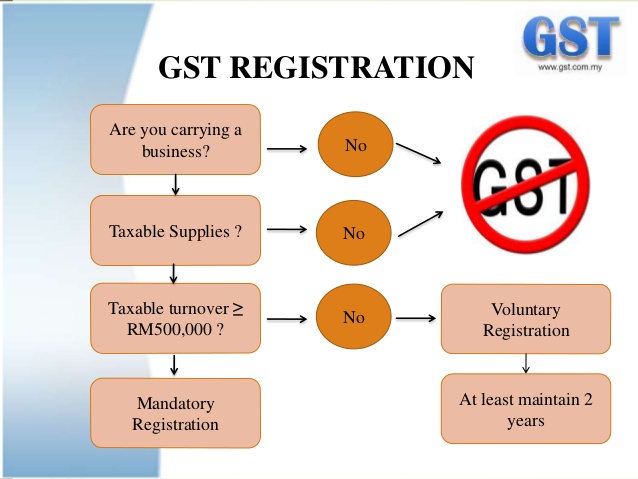Step-by-Step Process for Singapore GST Registration Explained
Browsing the Complexities of GST Registration: Expert Tips and Ideal Practices for Smoother Compliance
From deciphering registration demands to using technological devices for structured processes, the journey in the direction of smoother GST conformity is multifaceted and nuanced. Keep tuned to reveal necessary methods and insights that can assist services steer through the intricacies of GST registration with skill and self-confidence.
Comprehending GST Registration Demands

Along with turnover limits, businesses involving in interstate sales or providing taxed services might also be needed to register for GST, even if their turn over is below the prescribed limit (Singapore GST Registration). Recognizing these demands and limits is crucial to stay clear of penalties and guarantee smooth operations within the lawful framework
In addition, organizations must gather and prepare the needed documentation, such as evidence of identification, address, organization consolidation, and financial institution account details, before launching the GST registration procedure. Failing to give exact info or meet the registration target dates can lead to fines or various other legal repercussions. Therefore, businesses need to stay notified concerning the particular GST registration demands applicable to their operations to preserve conformity and prevent possible issues.
Organizing Crucial Documentation
Businesses getting started on the GST enrollment process should thoroughly put together and arrange the important paperwork needed for submission. The vital records generally needed for GST registration consist of proof of service enrollment or address, incorporation and identity proofs of the company owners or partners, checking account details, proof of primary workplace, and consent forms. Guaranteeing that these files are readily offered and organized can improve the registration process and protect against delays or beings rejected.
To properly arrange important paperwork, companies should develop a centralized system for keeping and categorizing the called for documents (Singapore GST Registration). Using electronic storage space options can aid preserve simple access and make certain that papers are securely stored. Furthermore, establishing a list of all necessary documents can work as a handy device to track what has been collected and what is still needed for entry

Leveraging Modern Technology for Performance
Enhancing functional effectiveness via technological assimilation is critical for modern businesses browsing the intricacies of GST registration. One of the crucial methods modern technology can aid in GST enrollment is through the use of automated software options.
In addition, innovation can promote smooth communication with tax authorities. On the internet websites and communication devices make it possible for companies to send papers, fix questions, and receive updates in a much more effective way. This not just accelerates the enrollment procedure but likewise aids in maintaining transparent and trustworthy communication with the pertinent authorities.
Additionally, cloud-based storage options offer a protected system for companies to store and gain access to their economic data, making sure conformity with GST record-keeping demands. By systematizing information storage space and automating procedures, businesses can enhance their overall performance and accuracy in GST enrollment treatments.
Proactive Conformity Monitoring

To make sure effective proactive conformity tracking, businesses need to develop robust internal controls, conduct routine audits, and leverage automation devices for real-time monitoring of GST transactions. Normal training sessions for employees on GST conformity requirements can likewise help in developing a culture of conformity visit this website within the organization. Furthermore, engaging with tax obligation consultants or specialists can offer valuable understandings and assistance on browsing complex GST laws.
Involving With Specialist Specialists
Involving seasoned tax professionals can considerably boost a company's understanding and conformity with complex GST regulations. Professional professionals bring a wealth of knowledge and experience to the table, assisting businesses navigate the complexities of GST enrollment effortlessly. By leveraging their competence, firms can ensure accurate filings, lessen the threat of errors, and stay updated with the most recent regulative adjustments.
When involving with expert consultants, it is necessary to choose professionals with a strong record in GST compliance (Singapore GST Registration). Search i was reading this for experts who have a deep understanding of the appropriate regulations and laws, as well as experience collaborating with services in your sector. Reliable interaction is vital in this partnership, so make sure to clearly specify your assumptions and develop routine touchpoints to go over development and attend to any type of problems
Additionally, expert consultants can offer important insights and guidance on enhancing your tax strategy, identifying possible cost-saving opportunities, and improving your compliance procedures. On the whole, buying professional consultancy services can go a long means in making certain smoother GST conformity and staying clear of costly blunders.
Final Thought
Finally, navigating the complexities of GST registration calls for a thorough understanding of the needs, company of important documents, leveraging innovation for efficiency, aggressive compliance monitoring, and engagement with specialist specialists. By following these ideal techniques, services can guarantee smoother conformity with GST guidelines and avoid prospective fines or penalties. It is important to remain educated, aggressive, and attentive in managing GST enrollment to maintain conformity and maintain financial honesty.
To guarantee conformity with tax laws, services should extensively understand the complex Get More Information requirements for GST enrollment. Goods and Solutions Tax Obligation (GST) is a value-added tax imposed on most items and solutions in a nation, making it important for organizations to sign up for GST to prevent lawful effects.Additionally, services must collect and prepare the necessary paperwork, such as evidence of identification, address, business consolidation, and bank account details, before starting the GST enrollment procedure. Companies must remain informed about the particular GST enrollment demands applicable to their operations to maintain compliance and stay clear of possible problems.
The crucial records usually required for GST enrollment consist of proof of organization registration or identity, address and incorporation evidence of the business proprietors or companions, financial institution account information, evidence of primary location of organization, and authorization kinds.